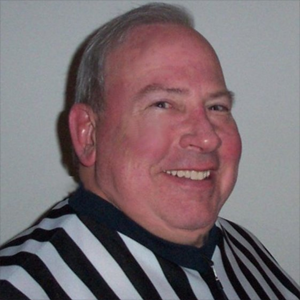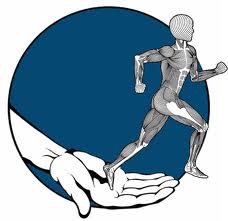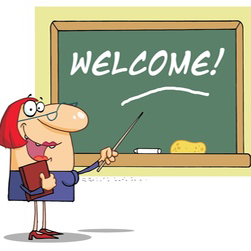
Rndballref
20 Years Experience
Chicago, IL
Male, 60
For twenty years I officiated high school, AAU and park district basketball games, retiring recently. For a few officiating is the focus of their occupation, while for most working as an umpire or basketball referee is an avocation. I started ref'ing to earn beer money during college, but it became a great way to stay connected to the best sports game in the universe. As a spinoff, I wrote a sports-thriller novel loosely based on my referee experiences titled, Advantage Disadvantage
Sounds like a bad call. The center for Team A does not establish team possession by tipping the ball, but by knocking the ball out Team B gets the ball. Because neither team had possession and B got the first ball the arrow is set for Team A's possession on the next one.
seems reasonable...
I agree that it is unfair to the lower levels that they get new refs learning the craft or old burned out refs just collecting a check, sub-par coaches who are just learning to coach, and parents who are learning to appropriately advocate and cheer for their kids.
I have always said this: we should pair varsity-capable refs with young, new refs to work and learn the craft in freshman games. Assignment chairman would say that the purpose of summer camps where refs work high school summer leagues is to train new refs and sift out untrainable officials. So if you think the officiating is spotty during lower level season play just wait until your kid plays in summer leagues officiated by training camp referees. Good luck and know that the quality of the players, coaches, officials and parents will improve as your daughter progresses.
I certainly encourage you to report this. Most people officiate because they love the game, and if you love the game you have a duty to do anything in your power to advance the avocation of refereeing. I suggest you find out who ran the AAU tournament and voice your concerns. Because of your background, meaning you have training and experience and do not appear to be simply a biased, ticked off untrained parent, the AAU tournament director should be willing to tell you who the assigner of the officials was for the tournament and you should contact him/her directly.
I think most states would not allow an official complaint at the state licensing level because AAU tournaments are not normally state sanctioned contests even though they only hire "patched state officials".
Physical Therapist
 What's the most dramatic "before-and-after" improvement you've ever seen with a patient?
What's the most dramatic "before-and-after" improvement you've ever seen with a patient?
Tattoo Artist
 Is it illegal to tattoo a client if he's drunk?
Is it illegal to tattoo a client if he's drunk?
Professor
 How do you prevent cheating and plagiarism these days?
How do you prevent cheating and plagiarism these days?
It is not a rule, but rather it is a mechanic perscribed in the NFHS Handbook. It used to be that the trailing referee would hand the ball to the free throw shooter for the first attempt and the lead (on the endline) would administer the rest of the free throws. Maybe ten years ago, it was changed so that the proper mechanic is for the lead official administer all free throws from the baseline. Most referees cannot advance if they do not follow the perscribed mechanics. Most importantly, mechanics set a consistent way of working a game, so that you can easily work with people you have never been assigned with, and secondly, following perscribed mechanics sets a professional expectation for coaches and assignment chairpersons to evaluate (in addition to judgement, hustle, and rules knowledge).
from the NFHS rulebook, " A player is in control of the ball when he/she is holding or dribbling a live ball inbounds". There are a few exceptions such as a jumper on a jump ball obtaining the ball before it touches the floor or a non-jumper.
Notice it does not exclude jumping in the air nor does it require 2 hands on the ball.
The rulebook provisions of the 3 second rule is that a player cannot be in the lane for 3 seconds or more while his teamates have established team possession in their frontcourt.
If a player has either foot on the edge or line which defines yhe lane, he is in the lane.
There is an interesting exception to a 3 count. A player can legally be in the lane for as much as 6 seconds as follows: he is in the lane for a count if 2 and receives the ball, the holds the ball for 2 counts and dribbles - he gets another 2 count. Then he must shoot .
But to your point, most experienced officials rarely call 3 seconds. You see newer referees at freshman games call it way too often. Most officials are taught that 3 seconds should only be called if and only if it results in an undue advantage. Thr principal is called Advantage Disadvantage. This means that when it is called it is ususlly a late call.. for example a player is camped out and normally when the shot goes up the 3 seconds restrictions are lifted, but if that player gets the rebound because he was there for more than 3 seconds the official should call it then.
A good preventative officiating move is for the official to shoo players out of the paint verbally to avoid having to call 3 secs too often.
-OR-
 Login with Facebook
Login with Facebook (max 20 characters - letters, numbers, and underscores only. Note that your username is private, and you have the option to choose an alias when asking questions or hosting a Q&A.)
(A valid e-mail address is required. Your e-mail will not be shared with anyone.)
(min 5 characters)
By checking this box, you acknowledge that you have read and agree to Jobstr.com’s Terms and Privacy Policy.
-OR-
 Register with Facebook
Register with Facebook(Don't worry: you'll be able to choose an alias when asking questions or hosting a Q&A.)